Politics of State Building: Lessons from the Prophet Muhammad ﷺ
Almighty Allah, the Exalted, sent the messengers to lead people to the right. He didn’t confine this ‘right’ to a particular point. His right encompasses all things which human needs to survive the earthly life. To meet this end, Allah Almighty made prophets perfect in all aspects of human life as they lead an earthly life. Politics is an inevitable part of their life since a stable nation, and powerful laws are determining factors in people’s life. Undoubtedly, almost all messengers sent by Allah Almighty tried their best to make a vigorous nation for people. Facilitating an amicable situation to worship God and creating a circumstance of living in peace and harmony was part of their holy mission.
Prophet Muhammad ﷺ was both the messenger and statesman. His leadership quality was so dynamic and exemplary, the reason with which he eventually turned into being a successful politician and ideal political thinker. He drafted a model constitution for state engaging with his political dealings in Madinah as well as in Makkah. As a politician, he unified the great Arabian Peninsula in a single rule, established a democratic nation and carried out a military expedition in a major part of Arabia. He was celebrated for establishing a governmental system in Arabia which had no central sovereign authority hitherto, but he placed all these deeds in the realm of spirituality and piety.
William Montgomery Watt, a Scottish orientalist and historian, praised the Prophet ﷺ for three gifts he owned. Amongst these three, he described more about the political diplomacy of the Prophet ﷺ. “We may distinguish three great gifts Muhammad had, each of which was indispensable to his total achievement. First, there is what may be called his gift as a seer. Through him —or on the orthodox Muslim view, through the revelations made through him— the Arab world was given an ideological framework within which the resolution of its social tensions became possible. Secondly, there is Muhammad’s wisdom as a statesman. The conceptual structure found in the Quran was merely a framework. The framework had to support a building of concrete policies and concrete institutions. Thirdly, there is his skill and tact as an administrator and his wisdom in the choice of men to whom to delegate administrative details. Sound institutions and a sound policy will not go far if the execution of affairs is faulty and fumbling.”[1]
Political Theory: The Prophet’s Proposition
Undoubtedly, the Prophet ﷺ paved the way for a sustainable political theory that is truly conspicuous in the widely accepted theories of modern times. The two widespread political theories in this era are the State of Nature Theory and Social Contract Theory. They are proposed by European philosophers Thomas Hobbes[2], John Locke[3] and JJ Rousseau.[4]
The State of Nature Theory addresses the condition of a human being without political affiliation. It says that the anarchic nature of human beings, in the absence of a “sovereign authority” (a leader), is sure to give rise to conflicts and clashes among society. Doubtlessly, the Prophet Muhammad ﷺ had proposed this same concept at the beginning of his mission. He vehemently opposed all sort of undertakings without a leader, even if it is a journey. The Prophet ﷺ said: “If there are three people on a journey, they should appoint one as a leader from among them”[5]. So as per the Prophetic vision, a caring leader should be entrusted for every deed in life and especially for affairs related to governance.
Let us examine the Social Contract Theory. It proposes that a government should be formed with a strong contract between ruler and people. And people should live together in society with an agreement that establishes moral and political rules of behaviour. Whenever the appointed leader violates the agreement, the governing authority can admonish him. Amazingly, the clearer version of the same theory had been in effect in the Prophets’ tenure and later. ʿUbādah bin Al-Walīd bin 'Ubādah bin As-Samit narrates: "We pledged to the Messenger of Allah to hear and obey both in times of hardship and ease, when we felt energetic and when we felt tired, and when others are preferred over us, that we would not contend with the orders of whoever was entrusted with it, and that we would speak the truth wherever we may be.”[6]
As a completion for his political theory, he made rulers to be held responsible for seeking Shūrā (consultation with people), allowing the masses of his State to rebuke the ruler if he ever goes astray. Indeed, we could see this even after the Prophet ﷺ. Here is one example from Umar ibn al-Khaṭṭāb’s reign: Once, he ordered, “Do not be excessive in the dowry of women”. Suddenly a woman raised her voice, saying, “It is not so, O ‘Umar; for Allah said: …even if you gave one of them a great amount” (4:20). In response, ‘Umar said, “Indeed, a woman has disputed with ‘Umar, and she has defeated him.”[7]
Prophet’s State
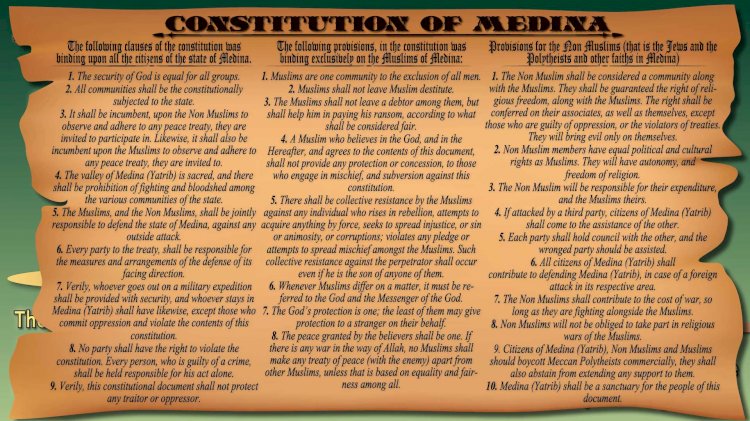
After the migration from Makkah to Madinah, Prophet Muhammed ﷺ established a powerful state where all people, irrespective of their belief, gender and culture, were equal. All the social and communal matters were decided through consultation (Shūrā). In his state, favouritism had no consideration. The story of Tu‘mah ibn Ubayriq is an example of justice and human right protection in his regime. Tu'mah, a Muslim, stole an armour and accused a Jew, Zayd ibn al-Samin, of theft. But Allah Almighty sent down a revelation warning such kind of injustice and unfairness. (see Surat Al-Nisā’: 110-112). After the investigation, Tu'mah was found guilty, and Zayd the Jew was declared innocent.[8]
First, in history, the Prophet ﷺ drafted a model constitution for governance in 622 AD. This document contained 17 clauses that set for the foundation of a sovereign state comprising Muslims, Jews and Pagans. All people were entitled to enjoy the same freedom under unified citizenship. The Prophet’s legal equality was inclusive to the ruler and ruled. Citizens could challenge the rulers if the latter were apparently wrong. The Prophet ﷺ exercised the delegation of power. He sent Muʿādh ibn Jabal as the governor of Yemen, permitting him to practice Ijtihad in matters on which no clear text was found in the Quran and Sunnah.
The migration of the Prophet’s companions to Abyssinia (presently Ethiopia) at the beginning of Islam was also a political strategy. It was a time to seek an alliance with the Christian king when the noble messenger and his companions were harassed and tortured from their homeland, Makkah, by his own tribe, the Quraysh. Muslims found peace and tranquillity in the new place and reciprocated the King’s hospitality with prayers and support in all their dealings. This finally resulted in the king’s embrace of Islam.
While the Prophet ﷺ took great care of his people’s religious affairs, he also looked into their economic well-being with serious considerations. He signed treaties and made alliances with tribes living in surrounding areas of Madinah, proving that his diplomacy was built on morality and honesty. He respected all his treaties, and he defended his people’s right. He was aware of the circumstances and made his people alert on all relevant occasions. While he never initiated a battle against anyone since he always wanted peace and harmonious relations, he was firm and decisive when he was attacked.
To put it briefly, the Prophet’s model in politics was inclusive, not exclusive. He included all values in his political perspectives. His state was egalitarian, where all citizens could enjoy the same right. His political policy was not to gain power and enslave people, but it was to establish a state where justice prevailed to its maximum extent.
Endnotes
[1] William Montgomery Watt, Muhammad at Medina, 1956, p 334-335
[2] Thomas Hobbes was an English philosopher, considered to be one of the founders of modern political philosophy
[3] John Locke FRS was an English philosopher and physician, widely regarded as one of the most influential of Enlightenment thinkers and commonly known as the "Father of Liberalism
[4] Jean-Jacques Rousseau was a Genevan philosopher, writer, and composer. His political philosophy influenced the progress of the Enlightenment throughout Europe.
[5] Abū Dā’ūd Sulaymān ibn al-Ash‘ath ibn Isḥāq al-Azdī al-Sijistānī, Sunan Abī Dāwūd, Ḥadīth 2078
[6] Abū `Abd ar-Raḥmān Aḥmad ibn Shu`ayb ibn Alī ibn Sīnān al-Nasā'ī, Sunan an-Nasa'i 4152
[7] Abd al-Razzāq al-Sanʿānī, Muṣannaf ʿAbd al-Razzāq al-Sanʿānī, Book of Marriage, Chapter on the high cost of dowry 10420
[8] Alī ibn Ahmad al-Wahidi, Asbab al-Nuzul 'Alī ibn Ahmad al-Wāhidī (2008, Royal Aal al-Bayt Institute for Islamic Thought ) p 65
(Fahad bin Ibrahim is an Islamic scholar from India, presently working as an English language teacher at the Ministry of Education, Republic of Maldives. He is the co-founder of Wadeema Muhamed Butti Women’s College, Kerala, India, an Islamic and Arts College providing religious and secular education for girls. Email: fahadkc123@gmail.com)
Disclaimer
The views expressed in this article are the author’s own and do not necessarily mirror Islamonweb’s editorial stance.

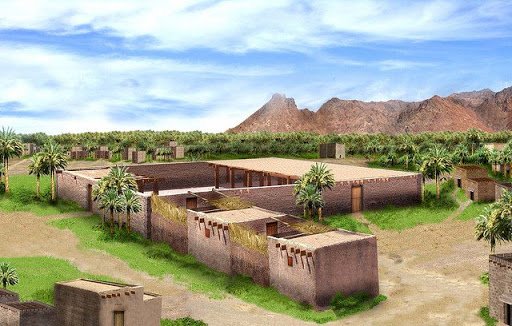



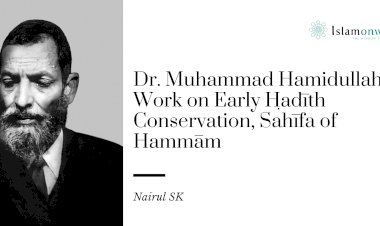
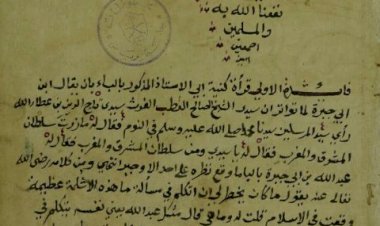
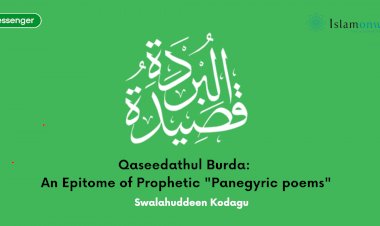
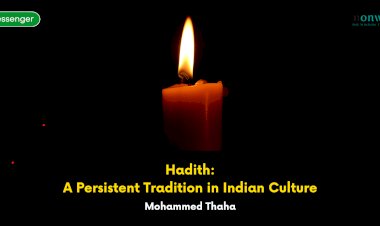
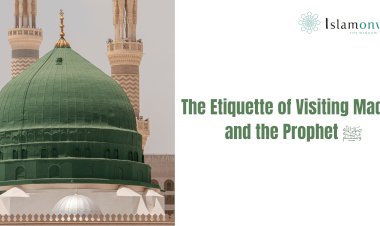














Leave A Comment